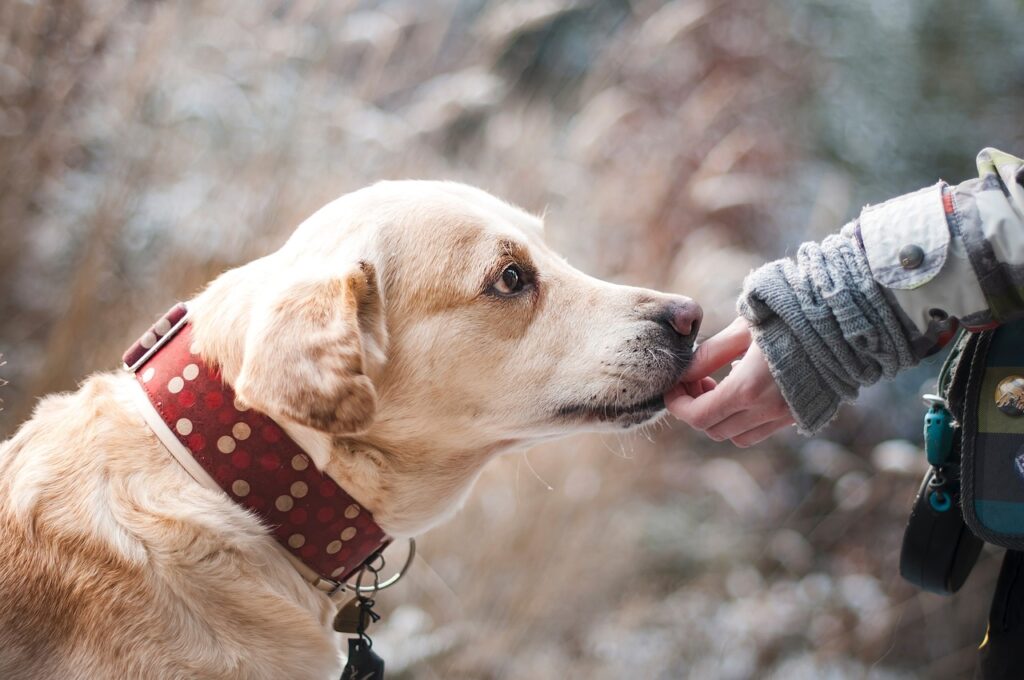Can Dogs Eat Liver? — Yes, They can
Liver is a nutritious organ meat that dogs can safely consume. It is packed with essential vitamins and minerals that can benefit their overall health. However, moderation is key when feeding liver to dogs, as excessive consumption can lead to vitamin A toxicity.
Can Puppies Eat Liver?
Yes, puppies can eat liver as well. However, it is important to introduce new foods gradually into their diet, including liver. Start by offering small portions and monitor their reactions. If any digestive issues or allergic reactions occur, it’s best to consult with a veterinarian.
Things to consider when feeding liver to puppies?
When feeding liver to puppies, it’s crucial to ensure it is fully cooked to avoid any potential bacterial contamination. Additionally, it’s advisable to provide liver in small, appropriate portions to avoid overwhelming their digestive system.
Nutritional Benefits of Liver for Dogs — Why Liver is Good for Dogs?
1. Rich in Vitamins
Liver is abundant in essential vitamins such as vitamin A, vitamin B, and vitamin D. These vitamins play a vital role in maintaining healthy vision, brain function, coat quality, and immune system support for dogs.
2. High in Minerals
Liver is a great source of minerals like iron, zinc, selenium, and copper. These minerals contribute to the production of red blood cells, immune system function, and overall metabolic processes in dogs.
3. Provides Protein
Liver is a protein-rich food that helps in tissue repair, growth, and muscle development in dogs. It contains essential amino acids necessary for their overall well-being.
4. Supports Energy Levels
The high nutrient content in liver provides dogs with an energy boost, making it an excellent choice for active or working dogs.
5. Promotes Healthy Skin and Coat
Liver contains omega‑3 and omega‑6 fatty acids, which contribute to healthy skin and a glossy coat in dogs.
Potential Allergies: Can Dogs Be Allergic to Liver?
While liver is generally safe for most dogs, some dogs may develop allergies or sensitivities to it. It’s essential to monitor your dog for any signs of allergic reactions, such as itching, rashes, or gastrointestinal issues.
Symptoms of Liver Allergies in Dogs
- Itching and skin irritations
- Vomiting or diarrhea
- Excessive drooling
What to Do If Your Dog Shows Symptoms?
- If your dog exhibits symptoms of a liver allergy, it is recommended to consult with a veterinarian. They can perform tests to determine the source of the allergic reaction and provide appropriate treatment.
- In the meantime, it’s crucial to remove liver from your dog’s diet and replace it with alternative protein sources.
- Ensure your dog has access to plenty of fresh water to stay hydrated.
Recommended Amount: How Much Liver Can a Dog Consume?
The recommended serving size of liver for dogs is approximately 1 to 2 ounces per week for small to medium-sized dogs and up to 5 ounces per week for larger dogs. It’s important to balance their diet with other protein sources and feed liver as a occasional treat rather than a staple food.
Things to Consider When Feeding Liver to Dogs
When feeding liver to dogs, it’s essential to choose high-quality liver from reputable sources. Ensure that the liver is fully cooked to eliminate any potential bacteria or parasites. It’s also important to vary their diet and not rely solely on liver as an exclusive protein source.
How to Feed Liver to Dogs: A Quick Guide
Introducing liver to your dog’s diet can be a delightful and nutritious addition. Here are three recipe ideas:
Liver Training Treats
Cut the liver into small pieces and bake them in the oven until they are crispy. Use these liver treats as rewards during training sessions.
Liver and Vegetable Stew
Cook liver along with dog-friendly vegetables such as carrots, peas, and sweet potatoes. Serve it as a nutritious stew for your dog.
Liver and Rice Delight
Cook the liver, chop it into small pieces, and mix it with cooked rice. This simple and tasty recipe will surely please your dog.
Conclusion
Liver can be a beneficial addition to your dog’s diet, providing essential nutrients and potential health benefits. However, it’s crucial to feed liver in moderation, ensuring it is fully cooked and balanced with other protein sources. Pay attention to your dog’s individual reactions and consult with a veterinarian if you have any concerns or notice any adverse symptoms.






